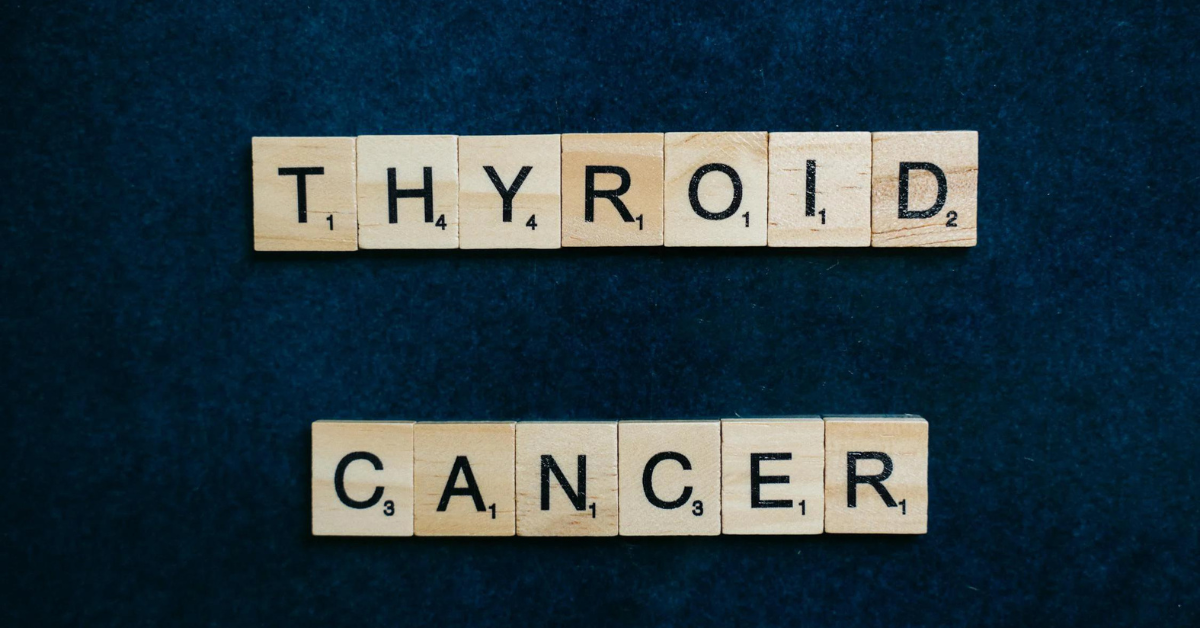3 Things You Can Do Now to Prevent Thyroid Cancer in Your Golden Years

If you ever touch the front of your neck, you’ll feel two lobes on each side of the windpipe. Those lobes are thyroid glands. These small, butterfly-shaped organs are vital since they release hormones that have an impact on metabolism, mood, heart rate, breathing, and other bodily functions.
However, just like other organs, they are prone to problems. Hyperthyroidism and hypothyroidism aren’t the only issues linked to thyroid glands. Tumors can also grow on thyroid glands, which can disrupt their functioning.
Virginia Beach Fire Capt. Josh Xenakis, a third-generation firefighter, has been battling thyroid cancer since July 2023. Besides him, about 12,500 men and 31,520 women are battling this condition. Thyroid cancer can occur at any age, but it’s most common in older adults.
Here, we’ll explore a few practical actions you can take to reduce your risk of thyroid cancer in your golden years.
1. Know Your Family History
According to Cancer Research UK, your risk of developing thyroid cancer increases if a family member has it. A close relative could be a parent, sister, brother, daughter, or son.
About 25% of people—25 in every 100 people—develop medullary thyroid cancer due to an inherited faulty gene. Changes in the RET gene lead to syndromes called MEN2A and MEN2B. MEN stands for multiple endocrine neoplasia. These syndromes increase a person’s risk of medullary thyroid cancer. You’ll develop the condition if you have these syndromes.
Cowden syndrome also increases a person’s risk of thyroid cancer. It’s a rare genetic disorder that is passed or inherited from an affected parent. Those with this condition often have tumor-like yet non-cancerous growths and skin issues. If you have Cowden syndrome, you’re more likely to develop thyroid cancer.
Pay attention to the health of your close family members. Should any member of your family have a medical history of thyroid cancer, discuss it with your healthcare provider. They will help determine if you need genetic testing or more frequent screenings.
Also Read: 10 Habits To Improve Your Health Performance
Genetic testing can identify specific mutations associated with a higher risk of thyroid cancer, which will allow for early intervention.
2. Drink Filtered Water
Drinking water contains potential carcinogens, which can increase your risk of thyroid cancer. News Medical’s recent publication reveals that. Tap water can contain contaminants like chlorine, fluoride, and perchlorate, which can negatively impact thyroid function.
Forever chemicals, or PFAS (per- and polyfluoroalkyl substances), are also found in tap water. Tests suggest that at least 60% of the US population may be exposed to forever chemicals through tap water.
PFAS are of significant concern since they are considered potential contributors to thyroid cancer. Researchers of a study published in eBioMedicine discovered that people exposed to perfluorooctanesulfonic acid (PFOS), a type of PFAS, were at a 56% increased risk of developing thyroid cancer.
These chemicals make their way into water through the aqueous film-forming foam (AFFF). These firefighting foams, TorHoerman Law explains, have been used by military personnel, fire departments, and other industries since the 1970s. AFFF, when mixed with water, forms an aqueous film that extinguishes fire by cutting the oxygen supply. Thus, it percolates into the groundwater, contaminating the local supplies.
Numerous AFFF environmental contamination lawsuits have been filed against more than a dozen industry giants, including 3M and Tyco Fire Products.
Among the numerous suits, one AFFF lawsuit has been filed by Kathy Jennings, Attorney General of Delaware. In the suit, Jennings alleges that 3M and other firefighting foam manufacturers have damaged the state’s environment. She further asserts that they have also jeopardized citizens’ health by introducing PFAS into groundwater, streams, rivers, and soil.
A water filtration system, such as activated carbon filters or reverse osmosis systems, can help you get rid of these harmful substances from water. Consider using it. This will reduce your exposure to potential endocrine disruptors and support the healthy functioning of your thyroid gland. Also, replace the filters regularly.
3. Minimize Radiation Exposure
A study published in the journal Endocrine Reviews links radiation with an increased risk of thyroid cancer.
Following the Chornobyl nuclear reactor accident, there was a dramatic rise in the incidence of thyroid cancer among children, especially those below the age of five. Exposure to radiation in high amounts damages the thyroid gland, which elevates the risk of cancer.
You can minimize your risk of thyroid cancer by limiting medical imaging tests, such as X-rays and CT scans. Ask your healthcare provider for alternatives, such as MRIs and ultrasounds, if those tests are absolutely necessary. Still, if you must undergo radiation-based imaging tests, use protective shields.
If you work in an environment with potential radiation exposure, such as healthcare or nuclear industries, follow all safety protocols rigorously. Use protective equipment and adhere to guidelines for limiting exposure.
All things considered, you can minimize your risk of thyroid cancer by taking proactive measures.
The strategies discussed above can help improve your thyroid health, eventually reducing your likelihood of developing cancer. Hence, incorporate these strategies into your daily life today, irrespective of whether you’re in your 30s, 40s, or 50s. That is because it’s never too early or too late to start taking care of your thyroid.







2 Comments